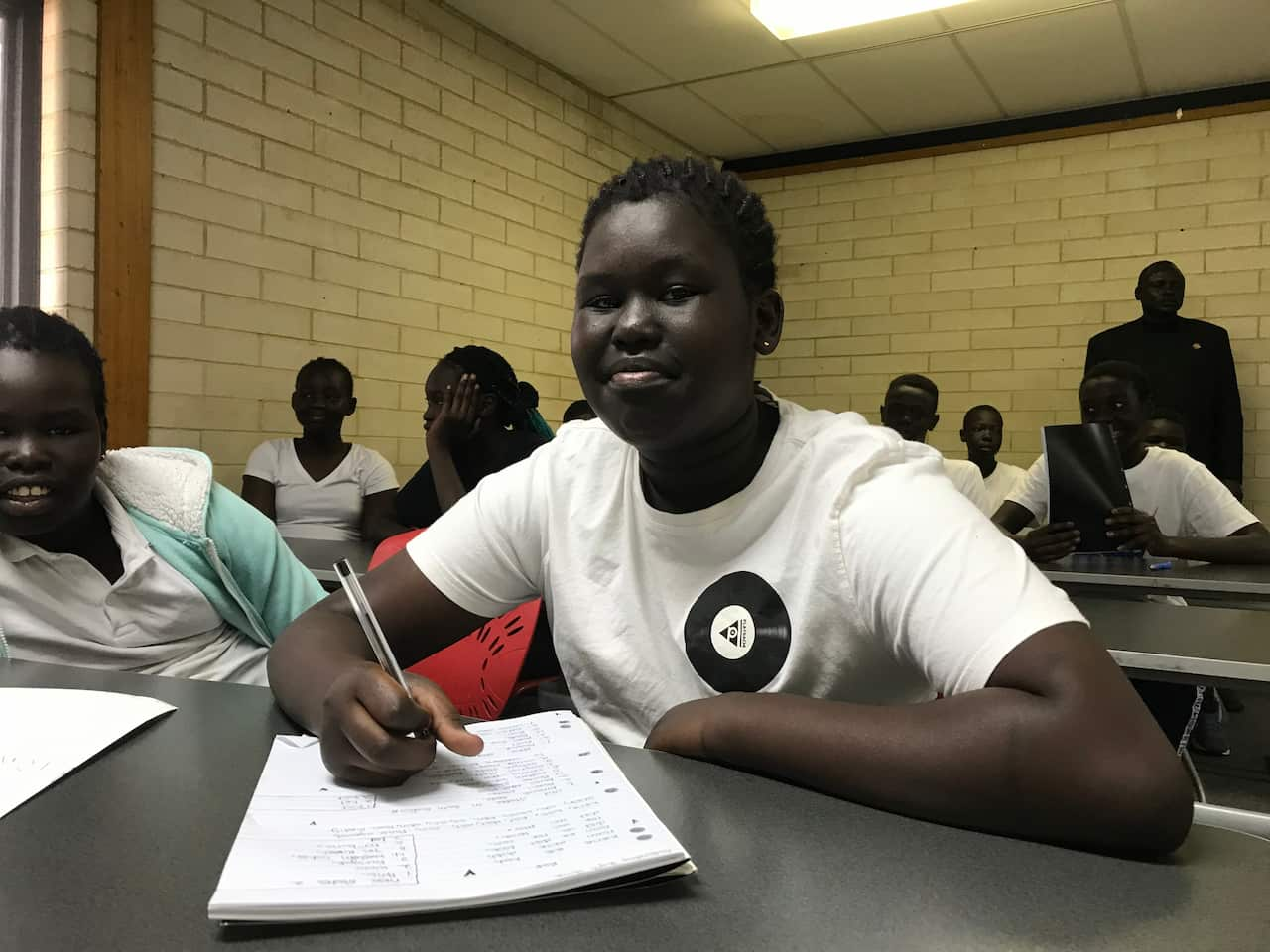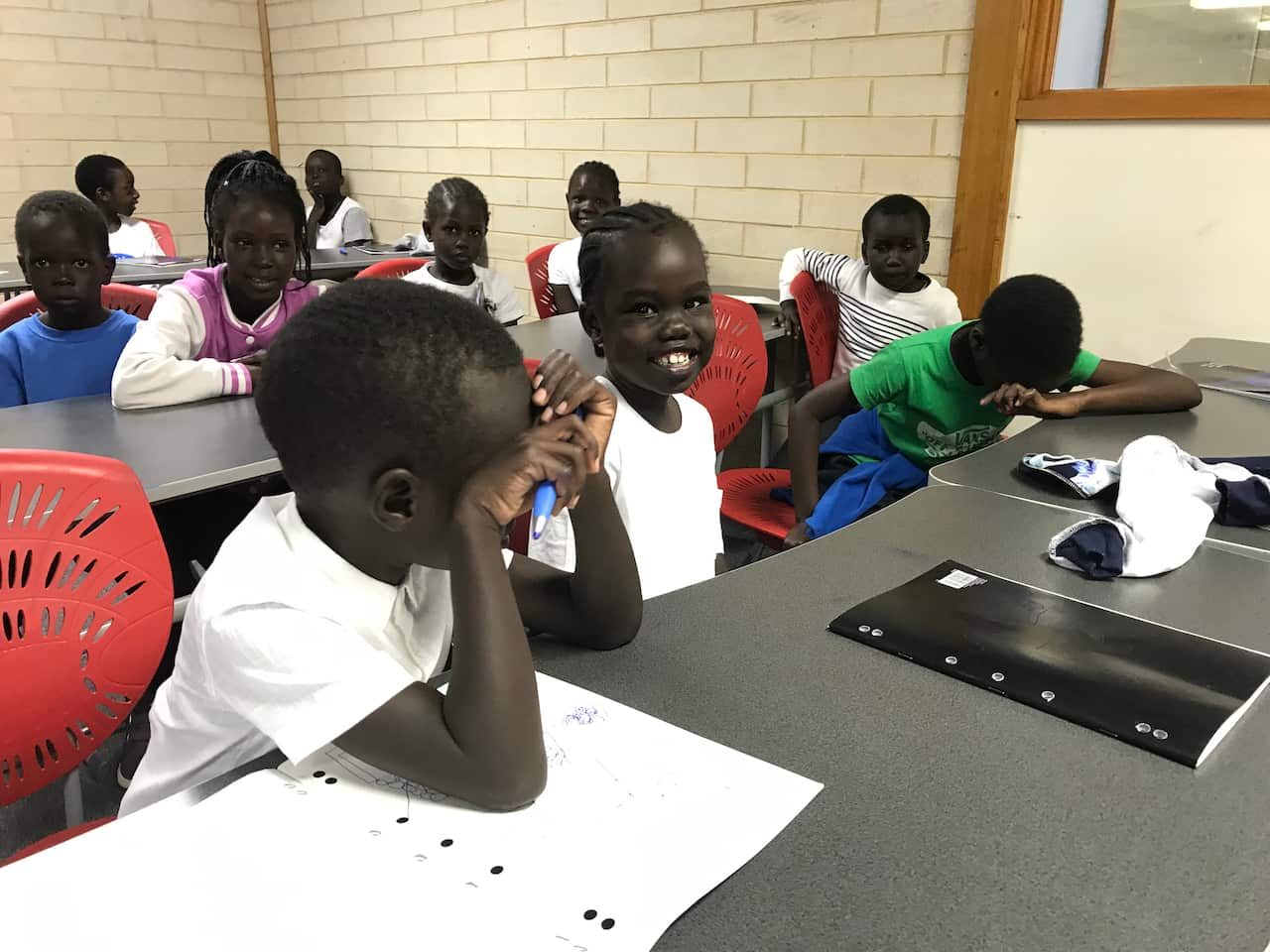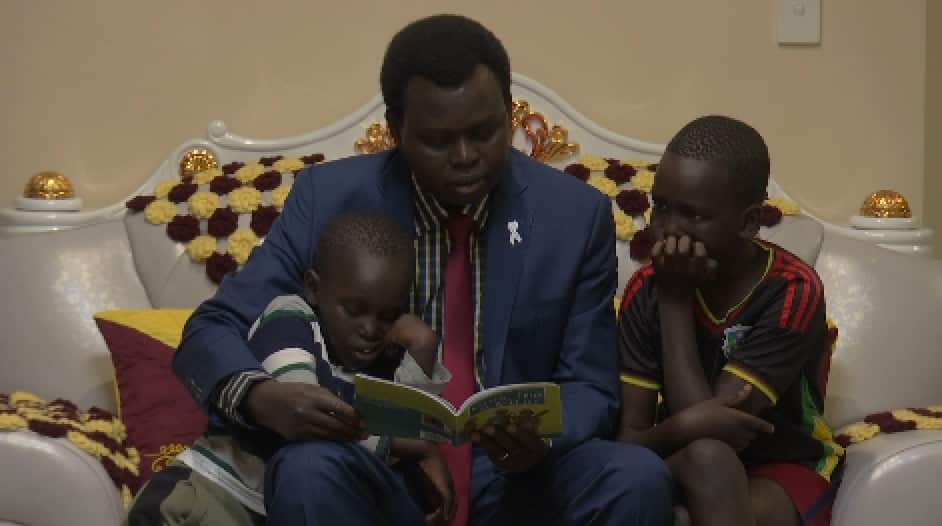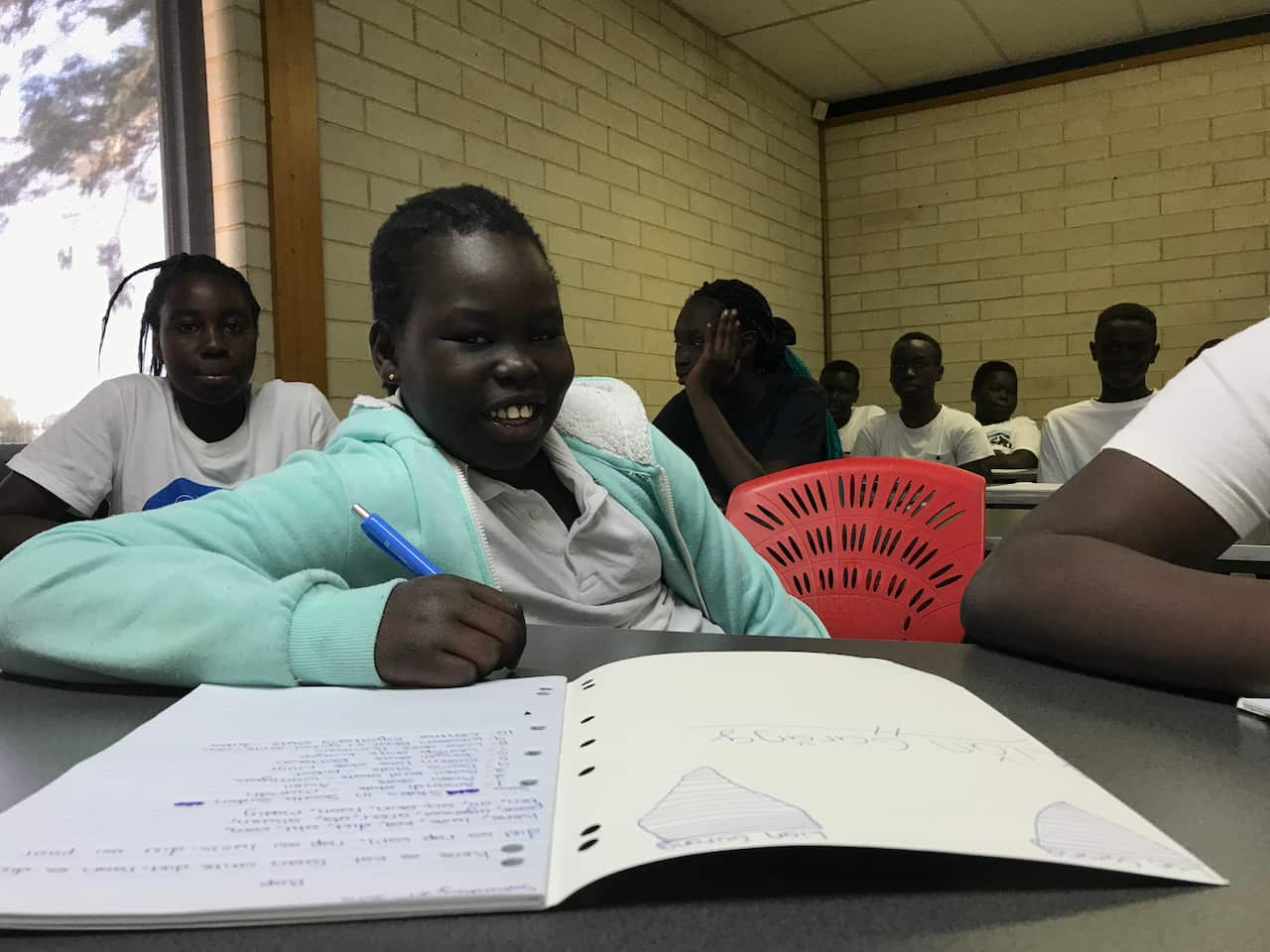Once a week, 12-year-old Yar Garang heads to Adelaide’s Dinka Ethnic School to learn the language her parents speak.
She was born in Australia to South Sudanese parents.
At home, they speak Dinka, but she says she doesn’t know it as well as English.
“We talk back [in Dinka], or I’ll just talk back in English sometimes,” she told SBS News.

Yar Garang, 12, is one of about 40 students attending Dinka Ethnic School. Source: SBS News
Like many second-generation Australians, she has grown up living between two cultures.
“When I come home, I feel full South Sudanese, but then when I go to school I feel full Aussie,” she said.
When I come home, I feel full South Sudanese, but then when I go to school I feel full Aussie - Yar Garang, 12
Every Saturday, she attends the school with about 40 other students.
"I think it’s important to learn your past and where your parents were born."
"So I don’t really mind coming to school on Saturday."

Students learning Dinka. Source: SBS News
Teenager Mabil Ajak says younger students in particular struggle with the language.
“Some of them have English accents, so they can’t make the African accent,” he said.
“It doesn’t sound right.”
Generation gap
Yar's father, Buol Juuk, and the school's teachers Gabriel Atem and Kuach Akech Kuach, come from a generation forced to flee what became South Sudan during a devastating civil war that ravaged the country from 1987 to 2005.
He says the school was set up in 2004 when parents in the South Sudanese community realised their children were growing up immersed in their new English-speaking culture and it was creating a growing communication gap between the generations.

Buol Juuk, centre, fled civil war for Australia. Source: SBS News
Mr Juuk says raising children who speak English with ease gives them an advantage over their parents.
“Children will have the power, because children understand the language better,” he said.
Children will have the power, because children understand the language better. - Buol Juuk, Parent
Despite many parents learning English to adapt to life in Australia, some prefer to revert to their mother tongue to get certain messages across.
“I would say that the majority of parents don’t actually have confidence in English, including myself,” he said.
“I do speak English, but I can’t say a lot of meaningful things in English, so I have to say them in Dinka for it to make a meaning, and make an impact on an individual.”
“Dinka is our language, it’s our power. So you can tell them in confidence what you want them to know.”
READ MORE

Who are Australia's South Sudanese?
Mr Juuk's own schooling was interrupted. He was one of the thousands of ‘lost boys’ of Sudan, children displaced by the civil war.
That inspired him to invest in his children’s education.
“We come from a mindset that education can change lives,” he said.
Keeping memories alive
Alek Biar, 14, also attends the school at the request of her parents. She speaks Dinka well, but there are some gaps.
“Some things, I don’t know. I don’t know all the animals, all the colours,” she said.

Alek Biar, 14. Source: SBS News
A generation ago, the children of southern Sudan were mainly from subsistence farming families, living in rural villages. It’s a world away from life in suburban Adelaide.
“In Australia, you use scarecrows, but in Africa, they don’t use scarecrows. They use people,” Alek said.
“They get really sturdy sticks and make a platform, then someone goes up there and … basically, just flings dirt at the birds and they go away.”
As one of the world’s newest nations, South Sudan is a country still finding its feet. In 2013, conflict between government and opposition forces left tens of thousands dead. Peace has resumed, but it is fragile.
As the country enters a restorative phase, it may well look to its diaspora for future leadership.
Mabil Ajak hopes to be among them.
“When I grow up and have a lot of money, I’ll go back there and help all the kids that don’t have an education,” he said.
“Probably, build a school for the kids.”
But parent Aleu Malak says most see their future here, in the place they call home.
“Maybe 10 per cent will go back to South Sudan, if they go back. But most of the people, they will be Australian, working for the welfare of Australia," he said.
“We want to maintain our own culture, because our culture is our pride."
“Although we’re also Australian, we want to be Dinka Australian.”
Share

